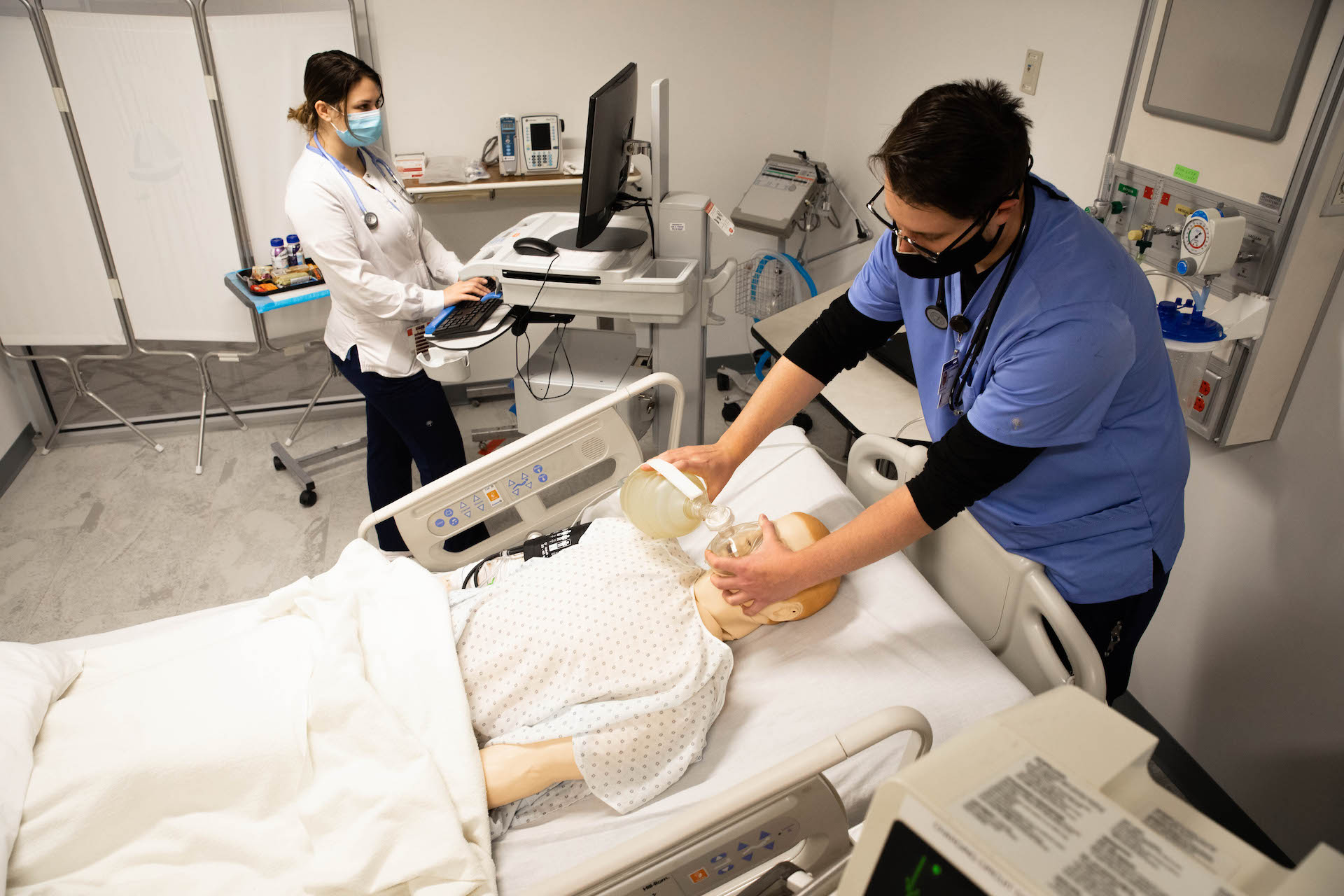Mission, Core Values, and Program Objectives
Mission Statement
Bucks County Community College provides a diverse community of learners with exemplary, accessible educational opportunities and the personal connections that foster success.
To support our mission, we:
- Engage and support students in learning experiences that lead to academic excellence and provide a foundation for the pursuit of higher degrees and lifelong learning.
- Empower students with the skills and credentials to secure employment in their fields and the capability to adapt and respond to the changing needs of tomorrow’s workplace.
- Develop the critical thinking skills, broad-based knowledge, and the social, ethical, and civic responsibility of our students.
- Enrich the intellectual, cultural, and recreational life of the community.
Core Values
The Core Values of BCCC and the Practical Nursing Department are:
- Respect for the individual
- Continuous learning, which fosters success in and out of the classroom
- Excellence in teaching and the work we do
- Responsiveness and open-mindedness
- Collaboration with colleagues, business leaders, community members, and other educators
- Responsible stewardship of resources
- Excellence in service to our students, the community, and each other
- A culture that fosters continuous improvement
Philosophy
The philosophy of the Practical Nursing Program is consistent with the core values and mission of the College. We affirmatively recruit and provide assistance to students from all racial, ethnic, cultural, and economic backgrounds. We subscribe to the College’s definition of an educated person. Our purpose is to prepare students for success on the National Council Licensure Examination for Practical Nurses (NCLEX-PN) so that graduates may obtain entry-level practical nurse positions.
Non-Discrimination Statement
Bucks County Community College does not discriminate in its education programs, activities, or employment practices based on race, color, national origin, sex, sexual orientation, disability, age, religion, ancestry, veteran status, union membership, or any other legally protected category. This policy is in accordance with state law, including the Pennsylvania Human Relations Act, and with federal law, including Title VI and Title VII of the Civil Rights Act of 1964, Title IX of the Education Amendments of 1972, Section 504 of the Rehabilitation Act of 1973, the Age Discrimination in Employment Act of 1967 and the Americans with Disabililites Act of 1990.
Educational Outcomes
The foundations of the program are based upon the scope of practice and functions of the Practical Nurse as set forth by the Pennsylvania State Board of Nursing Professional Code 21.145. The State Board specifies expected outcomes for new graduates from approved and accredited practical nursing educational programs.
The expected outcome competencies of the Practical Nursing Program are to prepare an individual who will be eligible to apply for licensure as a practical nurse, and function ethically, legally, safely, and holistically in caring for the basic human needs of patients of all ages
Graduates of practical nursing programs function under the direction of professional nurses, physicians and dentists. Practical Nursing is an integral part of all nursing. The primary role of the practical nurse is to provide nursing care utilizing clinical judgment, critical thinking, and a sound knowledge base to provide safe care for a diverse patient population. As a member of the discipline of nursing, practical nurses actively participate and subscribe to the legal and ethical scope of practice for the profession.
The goal of the Practical Nursing Program is to prepare Practical Nurses, who, under the direction of the registered nurse, physician or dentist, can provide competent patient care in any setting where nursing takes place.
Upon completion, the Graduate Practical Nurse will be able to:
- Utilize the nursing process to provide a comprehensive nursing plan of care.
- Demonstrate application of theory learned to the clinical setting.
- Employ ethical, legal, and leadership principles in all aspects of Practical Nursing within scope of the Practical Nurse Practice Law and the Practical Nursing Code of Ethics.
- Function as an effective and cooperative member of the health care team.
- Practice effective communication skills with patients, family, and other health care personnel.
- Acknowledge one’s own responsibility for continued personal and professional growth by reading current literature, actively participating in workshops, seminars, professional nursing organizations, and continued education in nursing.
- Accept faculty as facilitators of learning while taking accountability for one’s own success in program.
- Provide physical, emotional and spiritual support to patients holistically in any setting where nursing takes place.
- Meet the eligibility requirements for the National Council License Examination for Practical Nurses.
